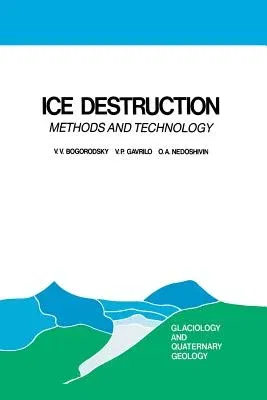V V Bogorodsky
(Author)Ice Destruction: Methods and Technology (Softcover Reprint of the Original 1st 1987)Paperback - Softcover Reprint of the Original 1st 1987, 4 October 2011

Qty
1
Turbo
Ships in 2 - 3 days
In Stock
Free Delivery
Cash on Delivery
15 Days
Free Returns
Secure Checkout
Part of Series
Glaciology and Quaternary Geology
Print Length
214 pages
Language
English
Publisher
Springer
Date Published
4 Oct 2011
ISBN-10
9401081654
ISBN-13
9789401081658
Description
Product Details
Book Edition:
Softcover Reprint of the Original 1st 1987
Book Format:
Paperback
Country of Origin:
NL
Date Published:
4 October 2011
Dimensions:
23.39 x
15.6 x
1.22 cm
ISBN-10:
9401081654
ISBN-13:
9789401081658
Language:
English
Location:
Dordrecht
Pages:
214
Publisher:
Weight:
326.59 gm

